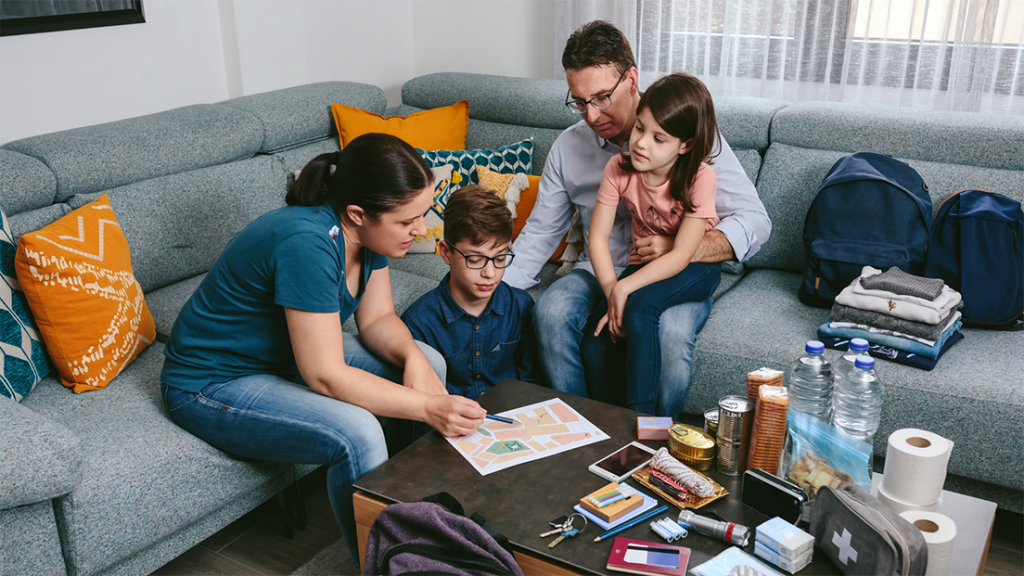In 1995, an unsuccessful search for two university students lost in the Bolkar Mountains prompted a small group of professional mountaineers to establish AKUT. Realising the earthquake risk in Turkey, they underwent additional training and have since become a key organisation in raising awareness and preparing for emergencies. All members of the AKUT team are volunteers, and in 1999, the Turkish government officially recognised AKUT as an “NGO working for public benefit.”
AKUT gained classification by the United Nations International Search and Rescue Advisory Group in 2011 and is one of only three organisations in Turkey that has INSARAG classification.
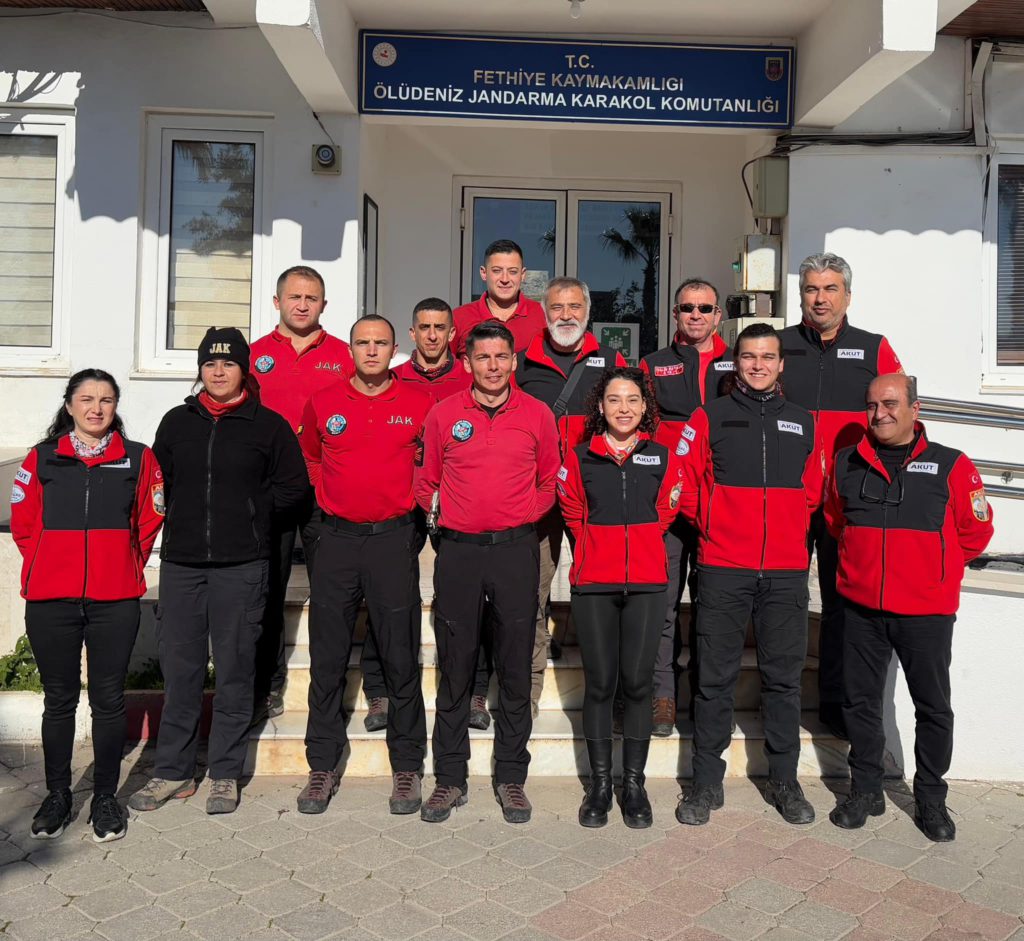
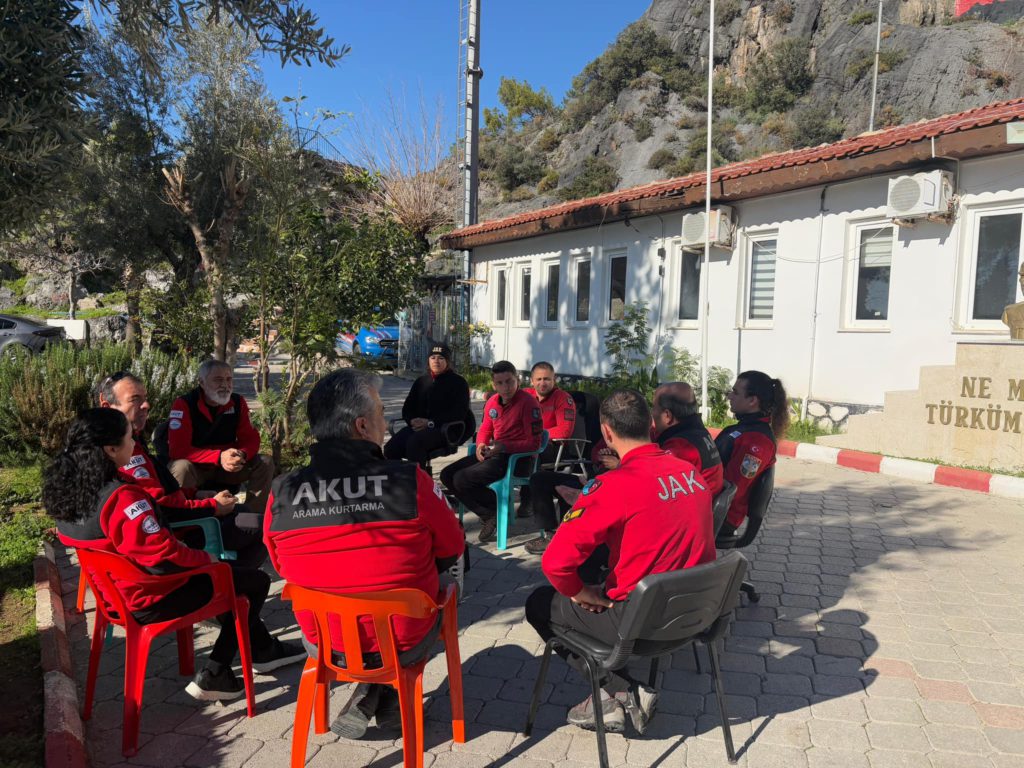
Since its inception, AKUT has carried out over 3,500 operations, saving lives in situations ranging from mountain rescues to flood responses.
The 1999 Marmara (İzmit) earthquake, which struck on 17th August with a magnitude of 7.6, claimed over 17,000 lives and left more than 250,000 people homeless. In the aftermath, AKUT played a crucial role in rescue efforts, saving over 200 lives.
More recently, on 6th February 2023, two devastating earthquakes, with magnitudes of 7.8 and 7.5, struck southeastern Turkey and northern Syria. The disaster caused widespread destruction, resulting in over 50,000 deaths in Turkey alone and displacing millions. AKUT was actively involved in search and rescue operations, working alongside national and international teams to save lives amid the devastation.
As of the latest available data, Turkey ranks among the top countries in terms of earthquake-related fatalities. Between 1900 and 2016, Turkey experienced significant losses due to seismic events. Notably, the 1999 İzmit earthquake resulted in over 17,000 deaths. More recently, the 2023 Turkey-Syria earthquakes caused approximately 62,000 fatalities, further impacting Turkey’s standing in global earthquake fatality statistics.
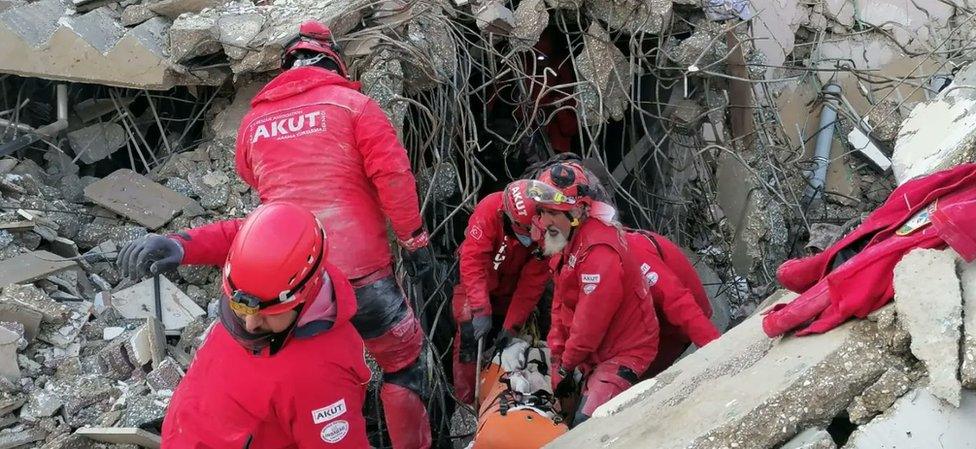
While specific rankings can vary depending on the time frame and data sources considered, Türkiye remains one of the countries most affected by deadly earthquakes.
Preparing for an Earthquake
An earthquake is a series of seismic waves generated by the sudden release of energy in the Earth’s crust, caused by the build-up and subsequent release of tectonic strain along geological fault lines. Being prepared is essential, as it ensures you and your family are ready to respond quickly and effectively when an earthquake strikes, minimising risks and maximising safety.
Inspect Your Building: Ensure that your home or workplace has been assessed for structural safety and meets the necessary building standards.
Get Insurance: Protect your property and belongings by securing insurance that covers earthquake-related damage and losses.
Identify Safe Places: Locate secure spots in your home, workplace, children’s school, and other frequented locations where you can take cover during an earthquake.
Set a Family Meeting Point: Choose a designated meeting place in case you become separated, such as a school gymnasium or a local basketball court.
Create an Emergency Plan: Develop a clear action plan that includes meeting points and conduct regular drills to ensure everyone knows what to do in an emergency.
Know How to Turn Off Utilities: Learn how to safely switch off gas, electricity, and water in that order. If you smell gas, do not touch any electrical switches—evacuate immediately.
Secure Loose Objects: Fasten tall furniture, such as bookcases and cabinets, and secure gas bottles to prevent them from toppling over.
Store Chemicals Safely: Ensure hazardous materials are stored properly to prevent spills or leaks during an earthquake.
Preparing an Emergency Bag
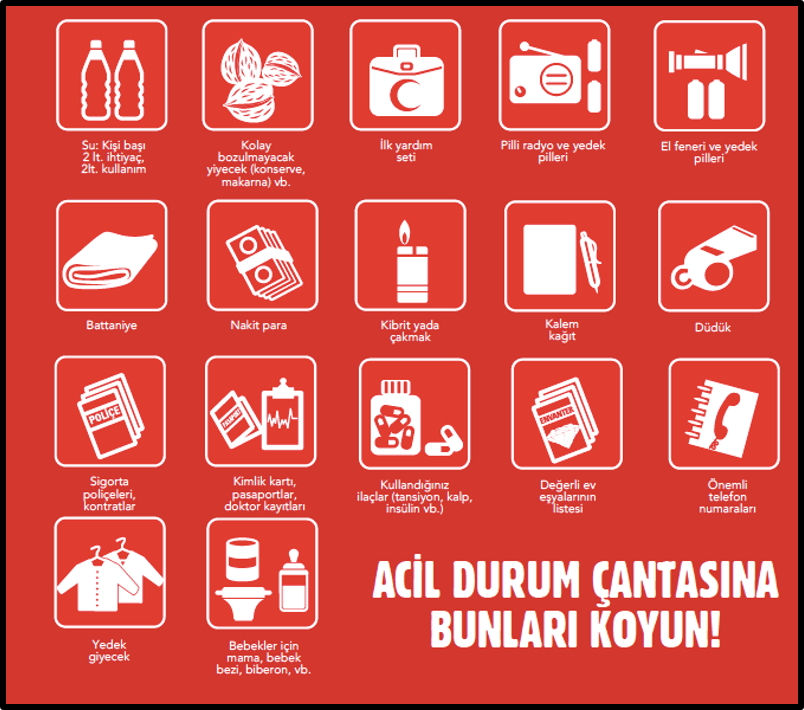
Having an emergency bag ready can make a crucial difference during a disaster. Ensure yours includes the following:
Essential Items
• Drinking water
• Non-perishable food
• First aid kit
Recommended Items
• Radio
• Torch (flashlight)
• Spare batteries
• Cash
• Notebook and pen
• Whistle
• Important documents (e.g., insurance papers, title deeds)
• Passport or ID
• A phone book with important contact numbers
Personal Items
• Blanket
• Prescribed medication (e.g., blood pressure medication, insulin)
• Baby essentials (e.g., food, feeding bottle, nappies)
• Any other necessary personal items for you or your family
Emergency Contact Numbers
Ensure you have a list of essential emergency services:
Ambulance – 112
Police – 155
Fire Brigade – 110
Forest Fires – 177
Natural Gas Emergencies – 187
Gendarmerie – 156
Coastguard – 158
AKUT Search & Rescue – 0212 217 0410
In Muğla, all emergency services can be reached by dialling 112. However, emergency numbers may vary by region. If you plan to travel outside your local area, check the relevant emergency contact numbers via this link in Turkish.
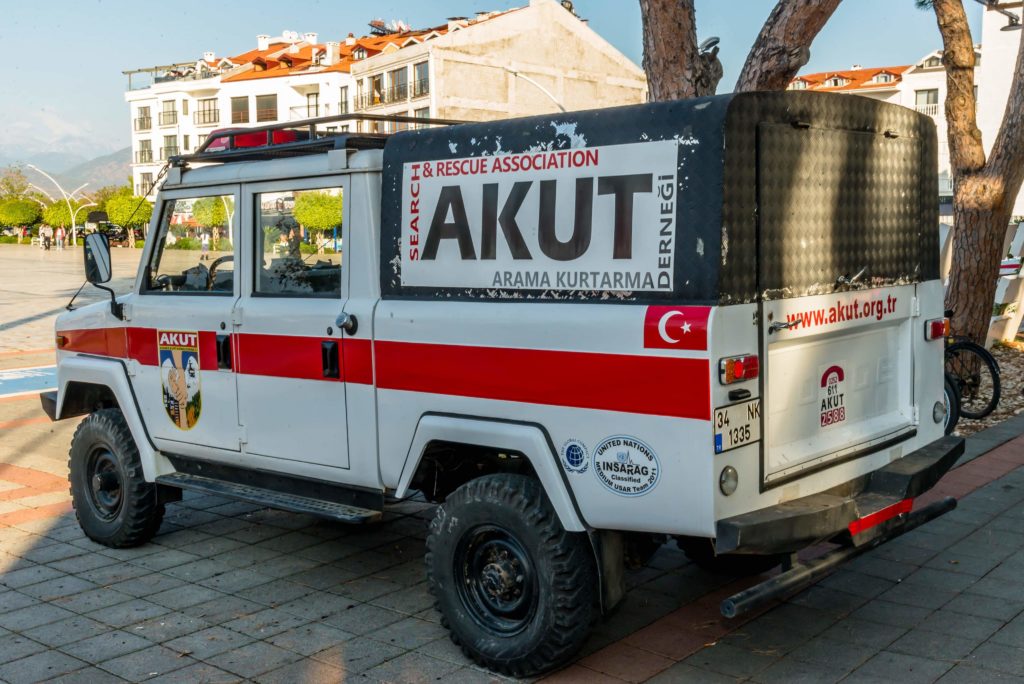
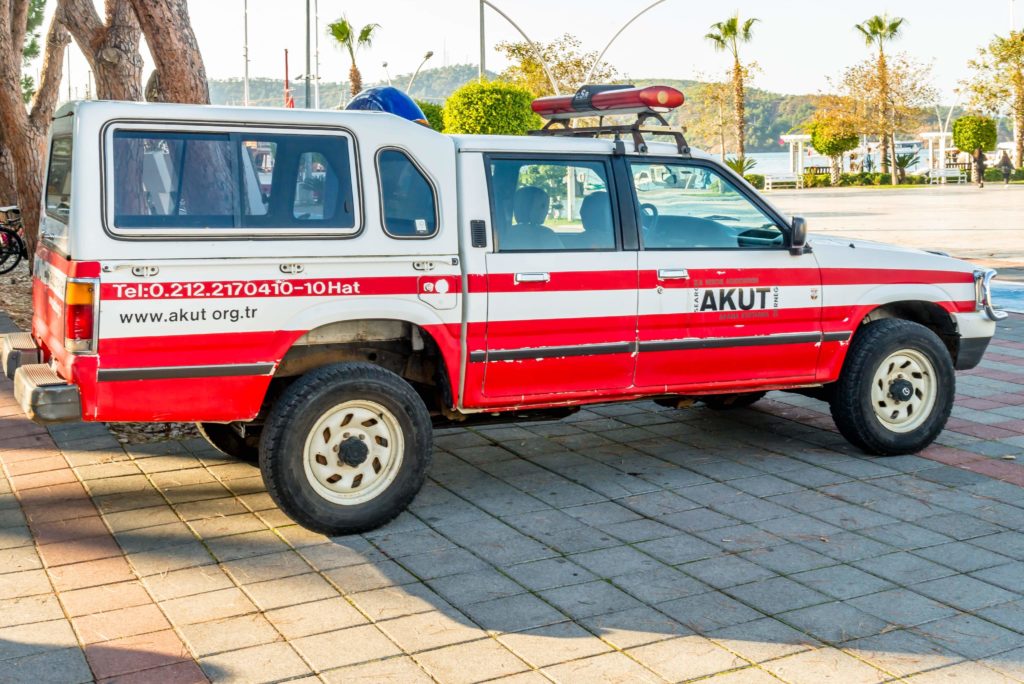
What to Do During an Earthquake
Stay Calm – The most important thing is to avoid panic. Protect yourself by moving to the safe spots you previously identified.
If Indoors – If your building is structurally sound and heavy objects are secured, crouch down, take cover, and hold on to something stable.
If Outdoors – Crouch down in an open space, away from trees, power lines, and buildings. Be aware of your surroundings and avoid standing in the middle of roads.
If on an Upper Floor – Do not use the stairs or attempt to jump from a window. Stay in a safe location and protect yourself until the shaking stops.
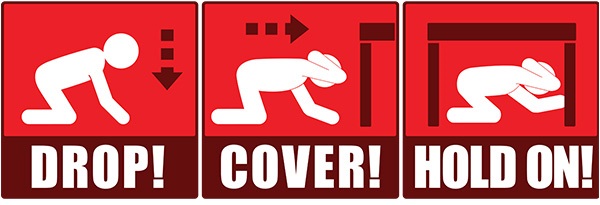
What to Do After an Earthquake
Stay Calm and Stay Together – Remain composed and stay with your family.
Leave Your Safe Spot and Grab Your Emergency Bag – Take only essential items and prepare to evacuate if necessary.
Turn Off Utilities – Switch off the gas first, then electricity, and finally water. If you smell gas, do not touch electrical switches—leave the property immediately and calmly.
Go to Your Designated Meeting Point – Avoid using your mobile phone to keep networks clear for emergencies.
Stay Away from Damaged Buildings – Do not re-enter any structure until authorities confirm it is safe. Avoid smoking indoors.
Document Property Damage – If possible, take photos of any structural damage for insurance purposes.
Be Cautious with Cupboards and Shelves – Items may have shifted during the quake and could fall when opened.
Prepare for Aftershocks – If they occur, drop down, take cover, and hold on.
Stay Informed – Follow emergency updates and instructions via a portable, battery-operated radio
What to Do If You Are Trapped Under Rubble
Stay Calm – Try to remain composed and avoid panicking.
Protect Your Breathing – Cover your nose and mouth with a piece of cloth or clothing to prevent inhaling dust. Minimise movement to avoid stirring up more dust in the confined space.
Conserve Energy – If rescuers can’t hear you, avoid shouting to conserve your energy. Instead, call for help at regular intervals and strike nearby solid objects like pipes or the building itself, as these conduct sound. If you have a whistle, use it.
Listen for Nearby Voices – Pay attention to any sounds from people around you, and try to communicate with others who may also be trapped nearby.
Tsunamis
Tsunamis are caused by a sudden displacement of the ocean, which can be caused by earthquakes, landslides, volcanic activity, or other events.
Earthquakes are the most common cause of tsunamis, occurring when tectonic plates move against each other, causing the ocean floor to move
You can read more about what to do in a tsunami warning here: UNESCO Tsunami Programme
Make a donation
The largest earthquakes on record to hit Fethiye were in 1957. The first earthquake hit at 21:17 hours local time on 24th April 1957 and lasted 25 seconds having a magnitude of 7.1; a stronger second quake occurred at 04:26 hours on 25th April; this one lasted for 60 seconds and had a magnitude of 7.3.
As a non-government organisation (NGO), AKUT relies solely on donations from the public.
Should you wish to donate to AKUT Fethiye, you can contact them via their Facebook page

